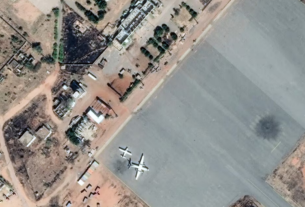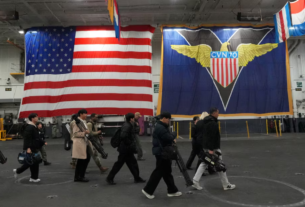A human rights group in Kenya has reported 82 cases of alleged forced disappearances since June 2024, raising alarms about growing violence and repression in the country. The report claims that these disappearances are linked to government security forces, who are suspected of detaining individuals without trial or legal process. The rights group has called on the Kenyan government to investigate these incidents and hold perpetrators accountable.
“Each case represents a person’s life and a family’s suffering,” said Peter Kamau, a spokesman for the Kenyan human rights group. “The government must take immediate action to stop these disappearances and restore trust in its commitment to justice.” The organization has urged international bodies, including the United Nations, to pressure Kenya’s government to address these human rights violations and provide protection for those at risk.
Many of the victims reported in the group’s findings are said to have been involved in protests or political opposition activities, suggesting that the disappearances may be politically motivated. Human rights advocates believe that the Kenyan government is using these tactics to silence dissent and intimidate those who speak out against the regime. “The trend of forced disappearances is a sign that Kenya’s political climate is becoming more repressive,” said Kamau.
While the Kenyan government has denied these claims, the human rights group insists that the evidence is undeniable. Testimonies from family members of the disappeared individuals paint a disturbing picture of illegal detentions by armed forces, often without any explanation or official charge. In some cases, individuals have been reported missing for weeks or even months without any contact with their families or legal representation.
The Kenyan police and military have long been accused of using violence and intimidation to suppress political opposition. In the past, the government has faced accusations of extrajudicial killings and unlawful detentions, though many of these cases have gone unpunished. “This has been going on for years, but it’s getting worse,” said Kamau. “We fear that it will continue unless there is international intervention.”
The Kenyan government has not responded directly to the latest allegations, though it has faced criticism from local and international human rights organizations. Many believe that the lack of accountability for previous violations has emboldened security forces to act with impunity. “Without accountability, the disappearances will not stop,” said Kamau. “Those responsible must face justice for these violations to end.”
The United Nations and other international organizations have condemned the use of forced disappearances, which are considered a serious violation of human rights under international law. In Kenya, these disappearances are often linked to political activism, where individuals who are perceived as threats to the government’s authority are targeted. Human rights groups argue that this trend not only violates basic rights but also erodes public trust in the country’s justice system.
As the situation in Kenya continues to unfold, the international community is closely monitoring the actions of the Kenyan government. Human rights advocates hope that pressure from global bodies will lead to an end to forced disappearances and the restoration of due process for all Kenyans. If the government does not take action soon, many fear that the practice of forced disappearances will only continue to escalate.




